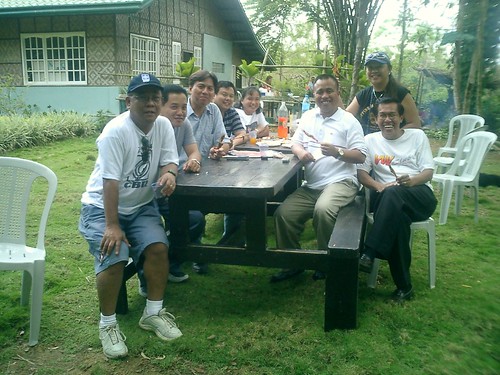
MALACA?ANG seems to have settled on a new strategy for dealing with the political crisis that is rooted in allegations of election fraud: Run last year's campaign all over again.
This is a gross error, because it mistakes mere motion for actual movement. It confuses the requirements of public relations with the requisites of governance. Not least, it hardens public perception that political survival is indeed President Macapagal-Arroyo's only objective, as the Hyatt 10 had warned.
It is a serious mistake, but one that's easy to understand. It worked the first time around. Last year, the make-work initiative gave a considerable number of out-of-work adults and out-of-school youth simple short-term but high-visibility jobs; the T-shirts they wore were walking advertisements for the President. PhilHealth cards were also issued to at least 5 million Filipinos during last year's campaign, with the President's face on the health insurance cards and the administration footing the bill for the first year's premiums. Both programs were controversial; the alleged diversion of the road-users' tax to finance the temporary employment program, in particular, was attacked as unconstitutional.
But they did what they were supposed to do; together with a tsunami of advertising and a series of effective town-hall open forums moderated by her running mate, then-Sen. Noli De Castro, the campaign's centerpiece programs helped the President raise her survey numbers and create an aura of inevitability.
Now the President proposes to do it all over again.
On the PhilHealth cards: "The Philippine national government gave the first year's premium with the hope that the local government will give the second year's premiums for indigents. But because these programs have become valuable for the local governments that are not able to provide the premium for another year, the national government will help to renew that insurance," she said. First estimate of total cost: P4 billion.
On the emergency employment program: "I have a budget of P2 billion for that. One part of it will go to the pavement [rehabilitation] which has to be done more professionally by the companies but the other part [involves] things that can be done manually. We hope that after it worked so well last year, it will also work this year to help reduce the unemployment problem," she said.
In making the announcement, Ms Arroyo also sought to soothe funding concerns. "With the increased tax collection from our phase one reforms [the increase in taxes on beer and cigarettes], we can now focus more money on things that will hopefully affect the poor more directly."
The two initiatives will certainly impact on the poor "more directly." But that doesn't necessarily mean that the administration should proceed with them, or even that the time is ripe for proceeding.
In the first place, it is premature to declare that "phase one" of the reform agenda has been completed. The expanded Value Added Tax law, to point only to the most prominent exception, continues to hang fire at the Supreme Court. To begin new spending programs before the new law is upheld is fiscally irresponsible.
Secondly, the proposed spending is itself suspect. The administration has the burden of explaining to the business community, the constituency that is tracking the reform agenda most closely, that these billion-peso programs were already on the drawing boards before the political crisis struck. (That will take some doing; the PhilHealth second-year premiums fell due last February and March.) To spend new money without the support of the business community is therefore politically risky.
Thirdly, the twin programs will reinforce public perception about last year's elections: That the President may have bribed, stolen, cheated or forced her way to the winning column. Palace advisers may have recommended that the President take a leaf from the political handbook of her Georgetown classmate Bill Clinton. But a perpetual campaign will only rub an already over-patient public the wrong way. The Arroyo administration needs a new controversy over warmed-over election gimmicks like a large hole in a very small head.







No comments:
Post a Comment